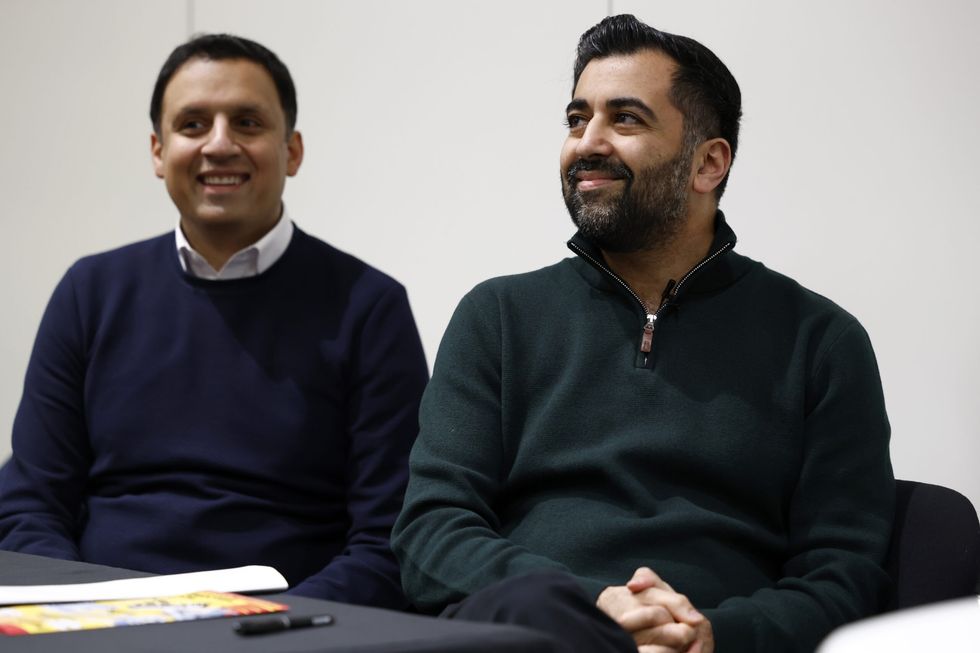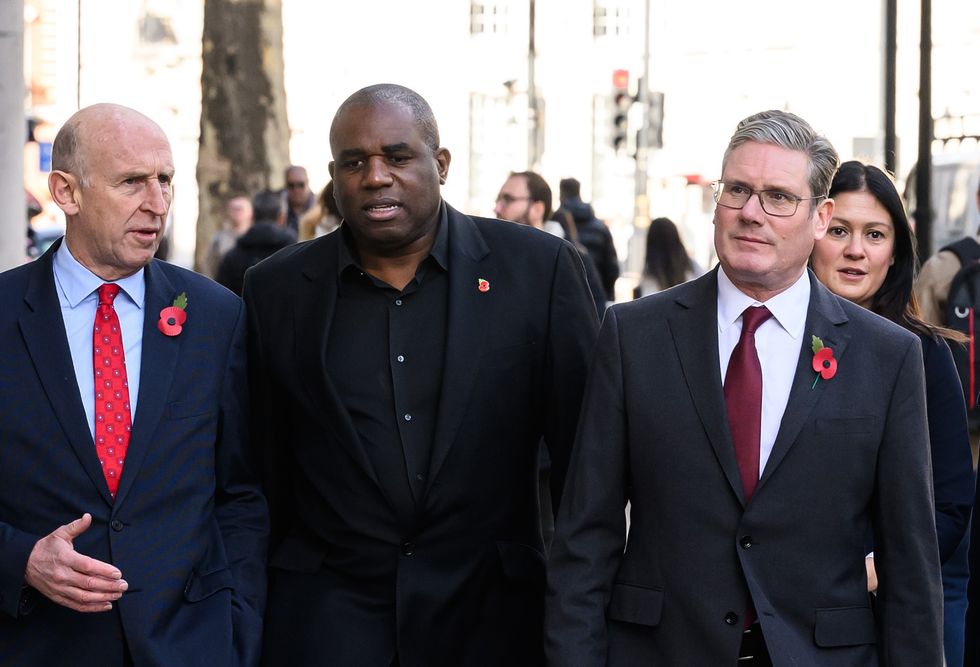DEMOCRACY is the theme of 2024. Around half of the world’s population has the chance to go to the polls.
This weekend’s vote in Bangladesh, boycotted by the opposition to Shekih Hasina, is an inauspicious start. Pakistan in February holds its first elections since 2018.
More than 600 million will vote in India, where a quasi-presidential campaign seems certain to secure Narendra Modi a third term to embark on a second decade in power despite efforts to forge a broad opposition alliance.

In South Africa, Cyril Rhamposa’s ANC may struggle to secure another majority after three decades in power.
The knife-edge American contest between two unpopular presidents in Joe Biden and Donald Trump will resonate most around the world. Vladimir Putin – who will host a parody of a democratic election in Russia – will hope that a Trump return sees NATO solidarity with Ukraine fragment. Most Israelis want Benjamin Netanyahu to resign beyond the war in Gaza, but the Israeli Prime Minister has incentives to hang on and hope for regime change in Washington first.
The British public rarely vote a prime minister out and a new government in. Aged 43, Rishi Sunak has only seen that happen just once in his adult lifetime, when David Cameron took office after coalition negotiations in 2010. Sunak was just turning 17 as Tony Blair took office in May 1997, having been born the year after Margaret Thatcher came to power. Yet it would take a minor political miracle for Sunak to stay in Downing Street beyond an election.

Every voter in England can vote for somebody in May - a mayor, councillor or a police commissioner at least, but Sunak may decide to delay the General Election another six months until after America votes.
Sunak’s allies hope he might remain party leader if he denies Keir Starmer a Labour majority, but most Conservatives are casting ahead to the leadership contest that would inevitably follow a heavier defeat.
This year could also prove to be one of retreat for British Asian political leadership. Scottish First Minister Humza Yousaf first major electoral test comes indirectly in the UK General Election. If Labour overtakes the SNP [Scottish National Party] in seats or votes, it may reopen the question of whether Yousaf will stay in office long enough to contest the Holyrood elections of 2026 against Labour’s Anas Sarwar. The Welsh government will have new leadership this spring after a Labour party contest between education minister Jeremy Miles and economy minister Vaughan Gething, who could become the first black leader of a national government in Europe, within the devolved UK.

London mayor Sadiq Khan is a clear favourite to secure a third term. The little-noticed abolition of the mayoral second preference could open a path to an unlikely upset, though Conservative contender Susan Hall may need assists from an independent left challenge and Green surge to hope to catch Khan on a third of the vote each.
A Starmer administration could have more gender balance, yet rather less ethnic diversity at the top table than recent Conservative cabinets. Shadow Foreign Secretary David Lammy is the best known black Labour politician. Shadow justice secretary Shabana Mahmood would emerge as the most prominent British Asian minister in a Starmer government if she can navigate the local impacts of the Middle East conflict in her Birmingham Ladywood constituency, defending a large majority of 28,000 in one of the three constituencies where most voters are Muslim.

Mahmood, with Rushanara Ali and Tulip Siddiq, was one of three Asian women to remain on the frontbench after internal party arguments over Labour’s position on calling for a ceasefire in Gaza.
Though there may be a long wait for Britain’s decisive political battle, there will be no shortage of sport to fill the time. As England head to India this month, both countries are set to play an extraordinary 16 Test matches in 2024, each spending not almost a quarter of the year on the field.

Germany hosting the Euro 2024 men’s football and the Paris Olympics make Europe the epicentre of the sporting year. England are joint favourites with France, with Jude Bellingham’s spectacular form at Real Madrid raising expectations that his generation will win England a major trophy.

The tournaments to come give me mixed feelings about how much hope to invest in Euro 2024. I have long felt that winning the 2026 World Cup must be written in the stars – falling with perfect symmetry three decades after the Three Lions song counted up thirty years of hurt at Euro 96. Euro 2028 being co-hosted across the UK and Ireland. But those concerns that England could peak too song may fade away if the chorus of Hey Jude joins Sweet Caroline and Three Lions in the pantheon of public football anthems this summer.
If politics will doubtless divide in 2024, a summer of sport could bring us together.




Comment: Elections around the world will shape politics in 2024
Modi, Sunak and Biden face voters in India, Britain and the US respectively this year